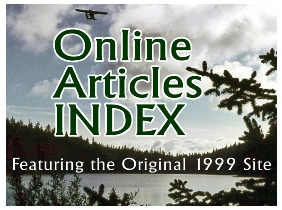TruthTexts Luke Study: Chapter 5
TruthTexts.com Luke Study – Chapter 5
Written and Posted by Timothy Smith
Hosted through Tanignak.com






To Find Out More About Tanignak.com, Click HERE
To Visit My “About Me” Page, Click HERE
To Return to Tanignak “Home,” Click the Logo Below:
More Actions that Apply to Any Chapter:
• Choose a verse, phrase, or section from today’s study that spoke to you, and explain what it means, as if you were talking to a friend.
• Now think of any other verses in any other part of the Bible that reinforce what you learned (or teach a similar lesson). You could use an online Bible and do a word or topic search, if your Bible does not have study notes.
• Now apply what you’ve learned today to your own life. What will you do (start doing, keep doing, stop doing, or change) from reading and thinking about our study today?
• Pray, in your own words, asking God, through the power of the Holy Spirit, to help you remember what you’ve learned, and ask for the power to live more like Jesus.
Luke Chapter Five:
The Messiah in Galilee, and the First Disciples
Thinking About Chapter Five:
In Luke 4:14-
Jesus set his ministry in sharp contrast to the many wandering “healers” and “prophets” who were common at that time. The antics and tricks of the fake messiahs may explain why the religious leaders were wary of Jesus’ ministry at first. But soon, as we begin to see in chapter 5, their opposition becomes unbelief, a deliberate, spiritual blindness that will lead to Christ’s crucifixion. But the regular folks, including many thought of as “sinners,” followed Jesus eagerly. They flocked to him, not only because of the healings, but as John 7:46 notes, “Never has anyone spoken like this man!”
A Miracle to Call Fishermen
The Gospels record several times when Jesus taught beside the Sea of Galilee (Lake
Gennesaret) while crowds gathered on the shore. For perspective, the lake is a little
smaller and roughly the same shape as Lake Tahoe. In verses 1-
• Simon knew Jesus as a traveling preacher, and knew He was not a fisherman. What is his honest reaction to Jesus’ request in verse 5? What is his reaction afterwards in verse 8?
• Look at Jesus’ call to follow (see Mark 1:16 and 20). Why does Jesus tell them not to be afraid (verse 10)? What do they do next? (verse 11)
• (deep dive question) John, who was there, does not record Luke’s story of the miraculous
catch. But in John 21:1-
Jesus and a Leper
Chapter 5 verses 12-
• In verses 12-
• How do we know that the leper did not keep his mouth shut? How would you have reacted if you had been cured?
• As we minister, what lesson can we learn from verse 16?
Two Kinds of Paralysis
Verses 17-
• What did Jesus notice about the ones who brought the paralyzed man? What did he say to the man?
• In verse 21, what did the religious leaders inadvertently admit about Jesus? What was Jesus’ response in verse 24 (who was Jesus claiming to be)?
• What is easier to say (verse 23)? Why?
• Why were the other onlookers filled with fear and awe? What did they say about what they had witnessed?
Jesus Calls Levi (Matthew) to Follow Him
In Luke Chapter 5:27-
• What does Levi do in verse 28? Then what does he do in verse 29? Why?
• What was the Pharisees’ complaint and Jesus’ response? Why did Jesus call the outcasts and not the respectable people?
A Deep Dive About Fasting, Old Coats, and Wineskins (5:33-
• What does Jesus call himself? Why?
• Jesus told his critics parables about old coats and wineskins. What did he mean? How does this apply to us?